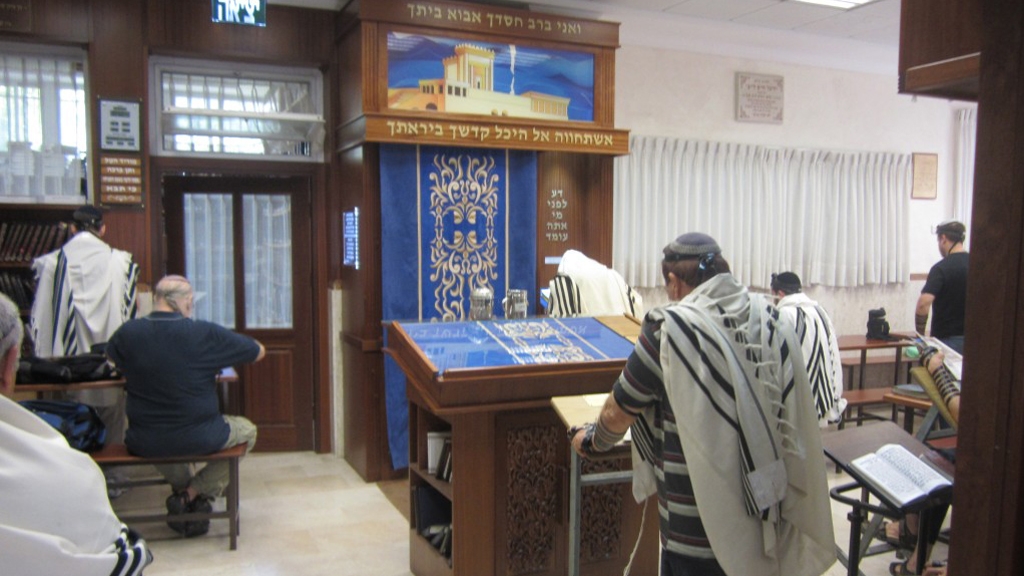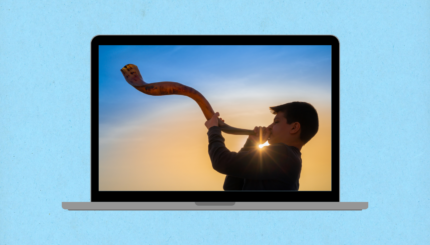This weekend is Rosh Chodesh Elul. For rabbis serving communities across the world, this means one important thing – it is time to buckle down and decide what we want to say in our High Holy Day sermons. Somehow, the High Holy Day sermon has become the World Series for rabbis. It doesn’t seem to matter what you say during the rest of the year – all is forgiven and forgotten except the High Holy Day sermon.
I realized a long time ago that I didn’t necessarily agree with this line of thinking. Why? First of all, just because you have a larger crowd does not necessarily make it more important – it just means more people will hear your words. Second, I believe we rabbis spend so much time focusing on the sermon, that we forget the impact of the rest of the High Holy Day experience. This past year, there is no question that I devoted much more time to the rest of the service, while still constructing thoughtful, intentional sermons, and it made the entire High Holy Day experience more meaningful. And third, it is just easier to write a better, higher quality sermon when you aren’t striving for it to be the best.
The biggest problem I see with High Holy Day sermon writing – we rabbis rarely say what we actually want to say. Too often we say either what we think people need to hear or what we feel obligated to share. The conversation on all of the rabbinic list serves in which I participate is – how do we tackle the big issues this year while remaining compassionate, non-partisan, true to one’s self, and a supporter of all? How do we begin to look at mass shootings in the United States, terrorist attacks across the world, apathy, bigotry and contempt in a meaningful and impactful way? How do we begin to address the political nightmare we see playing out on CNN, MSNBC and FOX News on a minute-by-minute basis?
The answer is: we cannot. We rabbis are simply humans. We are filled with emotion, personal perspectives and a strong urge to make this world a better place. We do not have answers to the world’s many problems, nor do we have solutions to our country’s clear political crisis, but we certainly know that standing idly by is never an option.
I envy the days of Rabbis Stephen S. Wise, Abba Hillel-Silver and Yoachim Prinz. These rabbis, of truly blessed memory, spoke their minds and their hearts on matters of the utmost importance, matters that changed the Jewish community, and most certainly the world. They spoke against Hitler and the Nazi regime in the early 1940s, in support of Zionism and a modern state of Israel soon after, and against racial injustice and in support of civil rights in the 1960s. These rabbis were jailed and hated for their opinions and their words, but they could not be silenced.
READ: 50 Years Later, Rabbis Jailed in Civil Rights Protest Return to St. Augustine
What do I think we rabbis should be saying from our pulpits this year, that will rarely if ever be said? Enough is enough. Enough with the hatred. Enough with the violence. Enough of the nasty politics. Enough with the media playing in to the political arena. Enough of the pettiness that will never make our country, nor or world, nor our lives any better. This year we cannot say dayeinu – it would have been enough; this year, we just need to say: dai… enough.
Rosh Hashanah
Pronounced: roshe hah-SHAH-nah, also roshe ha-shah-NAH, Origin: Hebrew, the Jewish new year.





